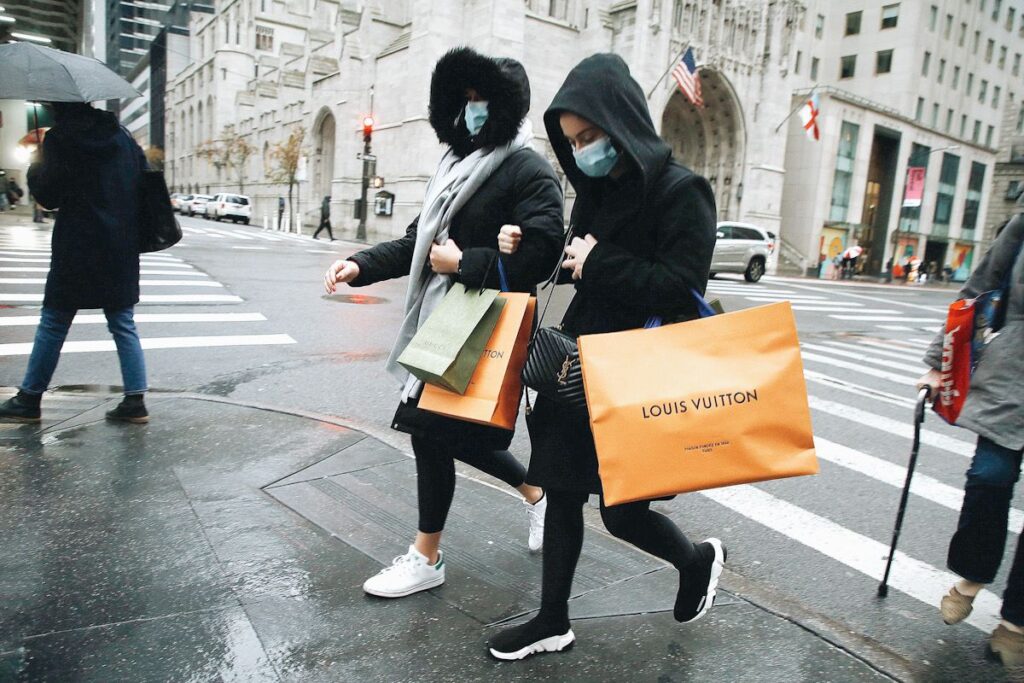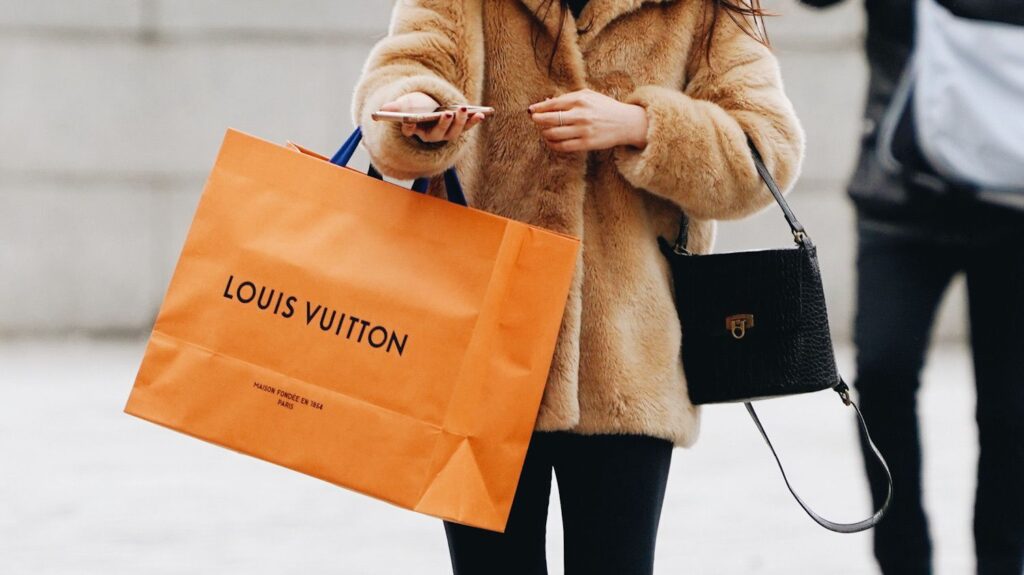New York is taking a stand against fashion’s toxic habits. In a world-first, the global style hub is set to hold luxury and fast fashion brands accountable for their impact on the planet and people with legislation. The new act, called the Fashion Sustainability and Social Accountability Act, or the Fashion Act for short, was introduced last week and sponsored by State Senator Alessandra Biaggi, as well as Assemblywoman Anna R. Kelles.
Fashion is responsible for huge amounts of waste, excessive greenhouse gas emissions, and worker exploitation. But the industry continues to operate with a lack of transparency and accountability. If passed, the Fashion Act would require companies to do their due diligence across their supply chains and go public with what they find. They must identify and take responsibility for social and environmental problems and then map out the steps they will take to rectify these issues. The bill, which will now move to the Senate and the Assembly, would apply to all fashion brands with more than $100 million in revenues that do business in New York State. (That means virtually every big name in the industry.)
The Fashion Act would be the first legislation of its kind in the world. Up until now, it has been down to consumers and activists to call for sustainable change, and for brands themselves to act on those calls. If they choose not to, and many do, there have been no real consequences. But the proposed bill would mean companies are bound by the law to improve the way they operate if they want to sell in the fashion capital of the world.
The law is a reflection of New York’s commitment to sustainability. In New York City, for example, the OneNYC 2050 plan includes pledges to reach carbon neutrality by 2050 and lead by example on climate change mitigation by cutting back on pollutive industries like single-use plastic and processed meat. And, as State Senator Gustavo Rivera, who co-sponsored the new proposed law, says, “the fashion industry is one of the world’s worst polluters.” He added: “Given that New York is one of the world’s fashion capitals, it is critical that we lead by example, and this bill will go a long way in ensuring that we meet our climate goals.”

New York’s groundbreaking Fashion Act
Under the Fashion Act, brands would have to set science-based, binding targets to reduce greenhouse gas emissions in line with the Paris Climate Agreement’s commitment to limiting the global temperature increase to well below 2 degrees celsius. (At the moment, the fashion industry is one of the world’s most pollutive industries, contributing around 10 percent of global annual greenhouse gas emissions.)
As well as laying out a concrete plan to reduce emissions, brands would have to quantify the amount of harmful materials they use—plastic-based, non-biodegradable polyester, for example, is relied upon heavily by fast fashion brands—and disclose this information publicly. They would have to lay out plans to minimize overproduction, use more recycled materials, and minimize a waste problem that has accelerated beyond control. It’s estimated that, around the world, 92 million tons of textile waste are created every single year.
Some companies have already started to produce targets to improve in response to consumer pressure, but others are way behind. For example, Shein, a notorious e-commerce fast fashion behemoth, recently hired former Disney executive Adam Whinston as its first global head of environmental, social, and governance, but the brand is yet to produce any actual plans for change. But as a business that wants to operate in New York State, the brand would be forced to produce these in order to comply with the legislation.

Protecting people in fashion
The Fashion Act would also seek to reduce human rights abuses in the industry. Companies would be required to examine the operations of the factories making their clothes, the treatment of workers within those factories, and disclose how much those people are being paid.
Worker exploitation is extremely common within fashion. With so many factories in different countries making clothes (Bangladesh, India, and China are among the industry’s top producers), there are lots of moving parts to keep track of. Many brands do not actually own the factories that make their clothes, and work with multiple sites around the world. H&M, for example, owns zero factories or suppliers, but works with 700 commercial product suppliers, who have more than 1,600 manufacturing sites. Boohoo works with more than 1,100 factories in around 30 countries.
Such extensive supply chains make it easier for brands to shirk responsibility, shift blame, and even turn a blind eye to wrongdoing that they ought to have the responsibility to weed out. In the UK, for example, Boohoo was found to be paying its Leicester factory workers just £3.50 an hour in 2020. And in Bangladesh, the second-largest producer of fast fashion after China, a number of factories are still operating with dangerous hazards, despite several companies signing an agreement to improve conditions after a 2013 factory collapse killed a thousand people in Dhaka. New York’s Fashion Act would force brands to take responsibility for these ongoing human rights violations.

Holding the fashion industry accountable
New York’s proposed act was backed by the Act on Fashion Coalition, a group of environmental and human rights organizations, including the New Standard Institute, the National Resources Defense Council, the South Asian Fund for Education Scholarship and Training, and the New York City Environmental Justice Alliance, as well as sustainable designer Stella McCartney—all of whom are eager to put a stop to fashion’s negligence of the planet and human rights.
McCartney has advocated for a more ethical approach to fashion since she started her brand in the early aughts. “To be truly modern, you must initiate and embrace change,” she says. “The Fashion Act is an example of a step towards a better, more regulated future. Our duty is clear, and now more than ever, we need to make changes to the way in which we do business.”
Brands will have 12 months to map out and identify problems, and then a further six months to produce a science-driven and actionable plan to improve those problems. For those who do not comply, there will be consequences.
Not only will companies be fined two percent of their annual revenue (money from which will be placed in the New York Department of Environmental Conservation’s environmental justice fund), they will also be named and shamed on a list produced by the New York attorney general every year. And in this era of conscious consumption, reputation is important. Consumers are paying closer attention to who is pulling their weight and who is not. After the Boohoo Leicester factory scandal, the fashion brand’s shares dropped 18 percent, with analysts predicting the bad publicity would impact its sales. But after Boohoo produced a plan to rectify the situation, shares started to bounce back.
Biaggi says the proposed legislation is “groundbreaking” and will make New York a global leader in holding the $2.5 trillion fashion industry accountable.


